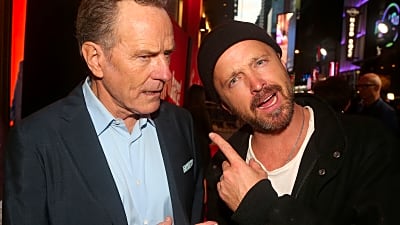When we lose a figure like malcolm-jamal warner, it doesn’t just make headlines—it leaves a silence that hums beneath the surface for those who grew up with his presence on screen. To many, he’ll forever be Theo Huxtable, the clever, relatable middle child from The Cosby Show. But to those who followed his career beyond that iconic role, Warner was far more than a sitcom star. He was a deeply intentional artist—a poet, musician, actor, and friend whose work and wisdom reached far past the credits.
His sudden passing on July 20 at just 54 sent a ripple of grief through Hollywood and beyond. It wasn’t just the loss of a talent—it was the absence of someone who, by all accounts, made the world feel just a little more thoughtful.
“I’m Proud to Say He Was My Friend”
While promoting Twisted Metal, actor Anthony Mackie paused mid-interview to reflect on his relationship with Warner. It wasn’t scripted or performative—it was raw. “I’m proud to say Malcolm-Jamal Warner was a friend of mine,” he said.
Mackie didn’t focus on Warner’s resume—he talked about their time together, about meaningful conversations. “Every time I was around him, I was able to take full advantage of those conversations and that time,” he added. “That, for me, is the most important thing.”
His tribute echoed sentiments he also shared with Deadline, where he described Warner as “a beautiful human being” and someone whose impact stretched beyond the screen.
Stephanie Beatriz, Mackie’s Twisted Metal co-star, offered her own reflection. “Coming to people in your life with the truest, most honest self… feeds the memories when you lose them,” she said. It’s a poignant reminder that grief, as painful as it is, often reflects how deeply we were connected in the first place.
Warner Was Always More Than Theo
Yes, The Cosby Show made him famous. But Malcolm-Jamal Warner never coasted on that success. His later work—whether it was playing bass guitar, writing poetry, acting in dramas, or co-hosting thought-provoking podcasts—proved that he was constantly evolving.
One of his podcast co-hosts described their final messages with Warner as “achingly ordinary.” Sometimes, it’s the everyday conversations that linger the most. “His life was unfairly short,” the co-host said, “but his impact was immeasurable.”
A Sudden Loss That Shook His Circle
Warner’s passing was the result of an accidental drowning while vacationing with family in Costa Rica. The news stunned everyone—fans, friends, and fellow creatives alike.
His on-screen sister, Keshia Knight Pulliam, posted an emotional tribute online. “I gained an angel, but I lost my big brother,” she wrote. A single line that held so much grief, but also so much love. For fans, it confirmed what many already knew—Warner was more than just a co-star. He was family.
What He Leaves Behind
It’s easy to forget, in the glitz of Hollywood, that stars are human beings with depth, flaws, dreams, and relationships. Malcolm-Jamal Warner never let his platform overshadow his humanity. He brought heart to every role, and honesty to every space he entered.
Anthony Mackie’s advice to “take full advantage of those conversations and that time” doesn’t just apply to actors. It’s a lesson for all of us. Be present. Be intentional. Be real.
A Legacy That Won’t Fade
For those of us who grew up watching him, Warner wasn’t just part of the background noise of 80s and 90s TV—he helped shape it. And for the artists and creatives who knew him personally, his influence runs even deeper.
His passing hurts. It should. But what he gave to the world—through his work, his relationships, his energy—still resonates. And that’s how you know someone mattered.
More must-reads:
- 20 movies where the supporting actor outshined the star of the film
- 'The Batman 2' to begin filming next year
Breaking News
Trending in Entertainment
Customize Your Newsletter
 +
+
Get the latest news and rumors, customized to your favorite sports and teams. Emailed daily. Always free!







